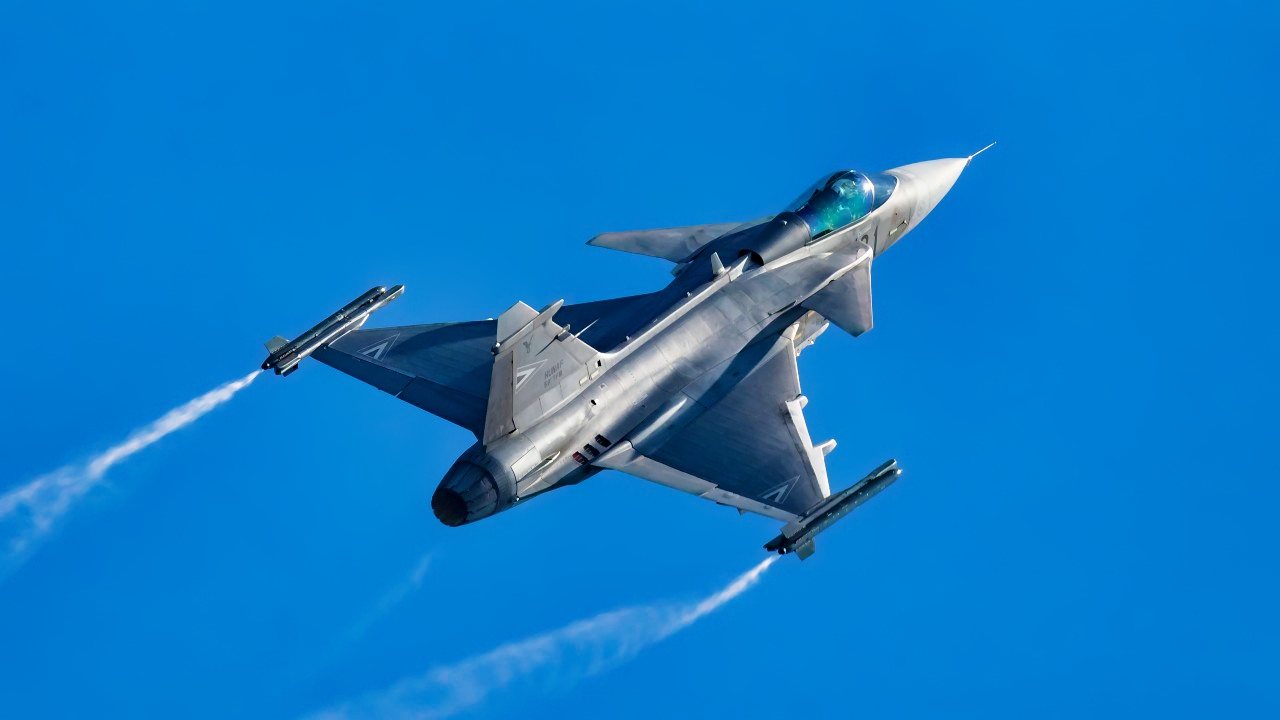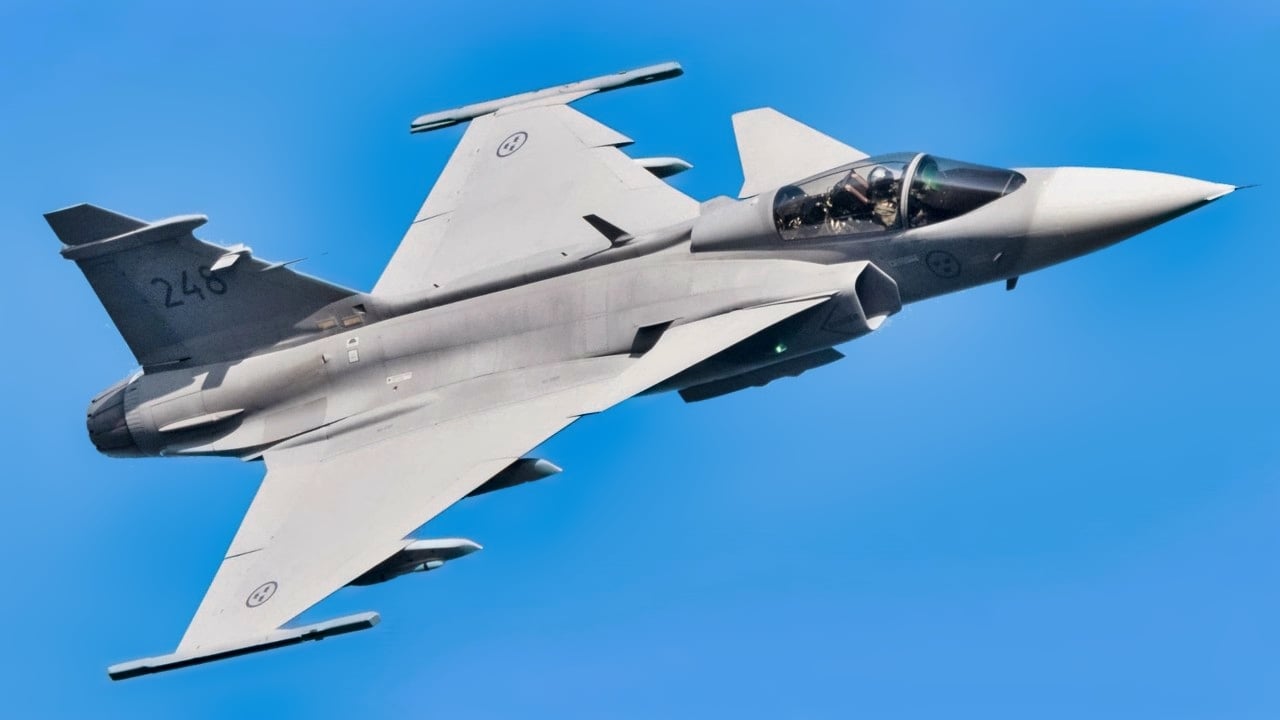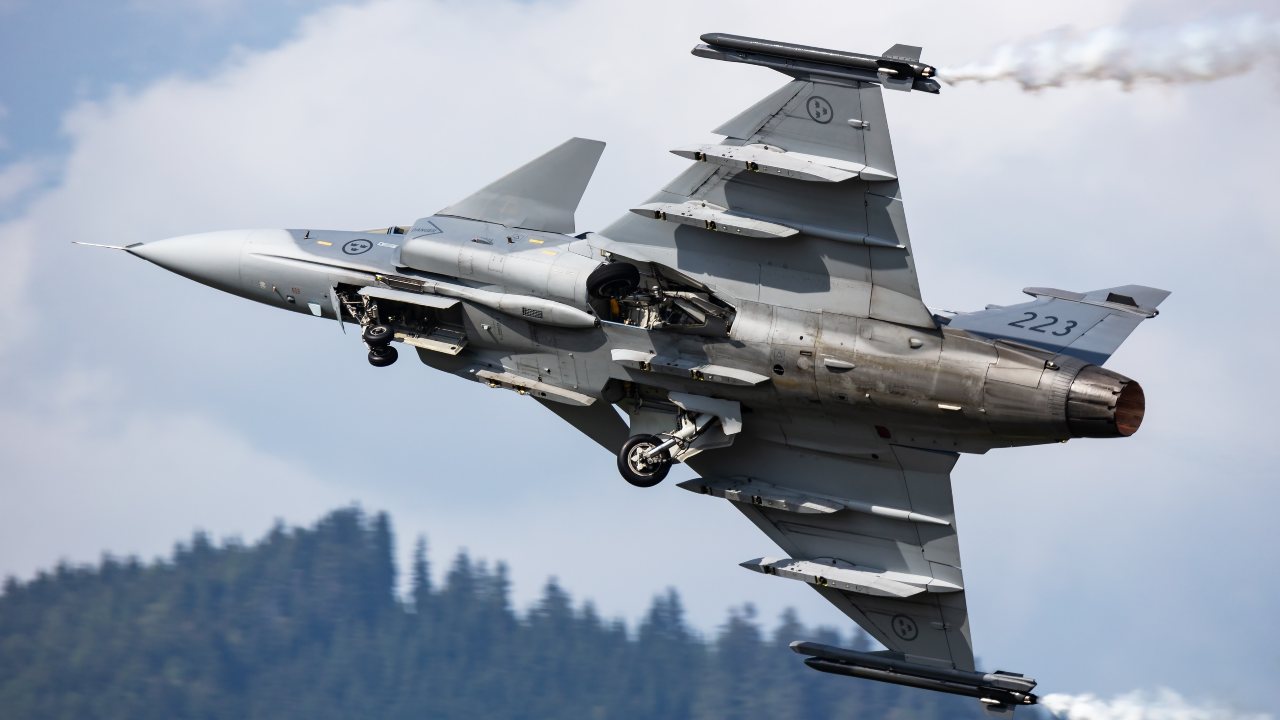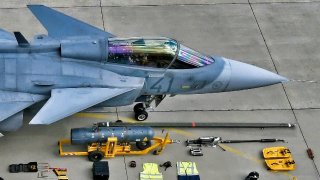JAS 39 Gripen Fighters Beat China's Air Force in a Wargame in the Sky
In a recent war game simulation, the Royal Thai Air Force's (RTAF) JAS 39 Gripen fighters significantly outperformed China's People’s Liberation Army Air Force (PLAAF) Su-27s in Beyond Visual Range (BVR) combat.
Summary and Key Points: In a recent war game simulation, the Royal Thai Air Force's (RTAF) JAS 39 Gripen fighters significantly outperformed China's People’s Liberation Army Air Force (PLAAF) Su-27s in Beyond Visual Range (BVR) combat.

-The Gripen fighters achieved an impressive kill-to-loss ratio of four-to-one, downing 41 Su-27s while losing just nine of their own.
-This result highlights the advanced capabilities of the Gripen, especially in missile avoidance and long-range engagements, and may provide reassurance to Indo-Pacific nations concerned about China's growing military prowess.
JAS 39 Gripen: The Thai Fighter Jet Outperforming China's Su-27s
In a recent war game simulation, the Royal Thai Air Force’s (RTAF’s) JAS 39 Gripen fighters reportedly outperformed Su-27s belonging to the China’s People’s Liberation Army Air Force (PLAAF) in Beyond Visual Range combat.
The outcome might provide some comfort to Indo-Pacific nations nervous about China’s expanding capabilities and assertive intentions.
Breaking down the results
The JAS 39’s results were encouraging, at least for the Thai. The aircraft earned 88% of their victories at a range of 19 miles or more. When the simulated smoke had cleared, the JAS 39s had tallied 41 downed Su-27s while losing just nine JAS 39s, a kill-to-loss ratio of four-to-one.
“The outcome underscored the Gripen’s capabilities and revealed the PLAAF’s learning curve in missile avoidance strategies,” Peter Suciu wrote.
The extent to which the United States takes comfort in the RTAF’s superlative showing is unclear. The U.S. and Thailand are allies on paper, but the alliance has been on unsure footing ever since a Thai military coup in 2014 established a new regime, which then proceeded to cozy up with China.
After the coup, in August 2015, “Thailand further held the ‘Falcon Strike’ joint exercises with the People’s Liberation Army Air Force (PLAAF) – with the Falcon Strike-2023 joint exercise between Chinese and Thai air forces lasting 21 days in Thailand, where participating troops from both countries carried out training subjects including air support, land assault, joint air defense, and large-scale deployment, which effectively enhanced their combat and joint operational capabilities,” Suciu wrote.
During the most recent Falcon Strike exercise, the JAS 39 Gripen was an obvious winner.
Breaking down the JAS 39 Gripen
Designed by Saab, the JAS 39 Gripen is a fourth-generation fighter. It is the most advanced jet to ever roll off the Saab assembly line.
When designing the JAS 39, Saab wanted a jet that could reach Mach 2 speeds and operate from short runways or even roads. It needed to be smaller than the preceding Viggen jet, and carry larger payloads.

The task was daunting, and the Swedish even considered importing a jet to meet their requirements. Options included the F/A-18, the F-20, and the Mirage 2000. But in the end, the Swedes gave Saab the green light to build a fourth-generation fighter.
With one seat and one engine, the jet is light and maneuverable, with canards and delta wings that permit a relaxed stability. Indeed, the JAS 39 is inherently unstable, and hence, very maneuverable – and as the Chinese can attest, very capable.
“According to a report from Aviation International News,” Suciu wrote, “an early December 2019 report from inside China revealed previously unreleased technical details of PLAAF’s Russian-built 27s losing a majority of engagement in a November 2015 joint exercise with the 701 Fighter Squadron of the Royal Thai Air Force (RTAF), which operates” the Saab JAS 39 C- and D-variant.

About the Author: Harrison Kass, Defense Expert
Harrison Kass is a defense and national security writer with over 1,000 total pieces on issues involving global affairs. An attorney, pilot, guitarist, and minor pro hockey player, Harrison joined the US Air Force as a Pilot Trainee but was medically discharged. Harrison holds a BA from Lake Forest College, a JD from the University of Oregon, and an MA from New York University. Harrison listens to Dokken.


